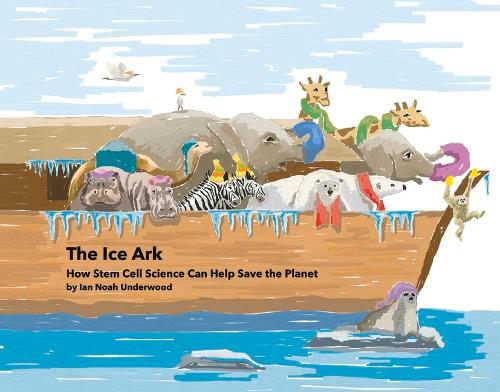
The Ice Ark: How Stem Cell Science Can Help Save the Planet
(Hardback)
Publishing Details
The Ice Ark: How Stem Cell Science Can Help Save the Planet
By (Author) Ian Noah Underwood
BookBaby
BookBaby
3rd May 2022
United States
Classifications
Physical Properties
Hardback
36
Width 234mm, Height 184mm, Spine 7mm
204g
Description
The great problems of our time are increasingly global in nature. Climate change and pandemics, for example, have no respect for geopolitical borders. Policies to address such critical challenges must therefore necessarily be conceived and enacted at global scale. The need for innovation has never been greater, and yet the ability of the scientific community to translate and communicate advancements to society and society's willingness to embrace them has seemingly never been more challenged. We are living in crucial times, and it's of the utmost importance to collaborate and innovate for a better tomorrow. In this groundbreaking book, the author presents an optimistic approach to remedy some of the most pressing issues the world faces today.
Stem cell research, perhaps most recognized for its immense potential in human regenerative medicine, is among the most exciting frontiers in biological science today. In "The Ice Ark", Ian Noah Underwood introduces stem cells in the less publicized but no less vital context of potentially helping offset our planet's accelerating loss of biodiversity. Drawing comparisons to the biblical story of Noah's ark, Underwood presents complex scientific topics in a colorful, easily accessible, picture book format. He offers optimism, and he does so by engaging a youthful audience that should be most receptive to such optimism.
Author Bio
At the time of writing this book, Ian Noah Underwood is a high school student in Jackson, Mississippi. He has devoted significant time to studying cell biology but hopes to expand his influence beyond the lab by helping bridge the communication gap between the scientific community and society. His goal is to foster enthusiasm for life science at an age that is not yet burdened by cultural biases and to help encourage public policy that advances the health of the earth and its inhabitants.
When not in the lab, Ian enjoys spending time with friends and family, watching sports, and listening to music.
